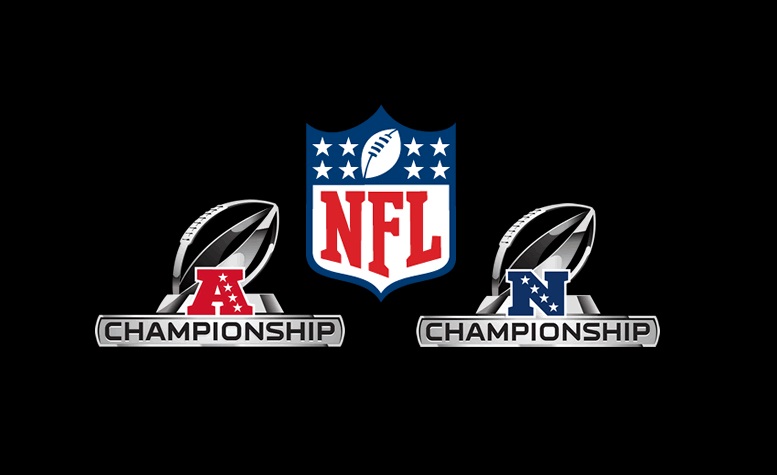It was only a few decades ago when anyone who wanted to wager legally in North America had no choice but to go to the racetrack. Casinos only existed in Nevada and Atlantic City, poker rooms were for the most part illegal and the Internet obviously wasn't invented. Many gamblers knew someone who would take their sports wagers but there was always the risk that their bookie would get busted and the bettor wouldn't collect. Moreover, because this type of gambling was illegal the bettor couldn't rely on the law to help. As a result, racetracks flourished. Weekends saw the grandstands packed and even on weekdays, there would be plenty of patrons that either skipped off work or took the day off to watch a generally inferior card of racing. As well, because the Interstate Horseracing Act hadn't yet been passed, betting on races from other
tracks just didn't happen. The only option for horse players was to bet the ponies for the track they were attending. The tracks charged for admission, parking and programs and players gladly paid because it was the only game in town.
In many parts of Europe today that is still the case. England just completed the Cheltenham Festival, a 4 day long event where all tickets were sold out and betting exceeded $200 million. And in England along with other parts of Europe horse racing continues to flourish. Europeans and Asians see horse racing as a form of entertainment. On any weekend in Europe and Japan the races will often be combined with bands or other forms of entertainment and racing is seen as fun for the whole family. There are usually horse rides for the kids, amusement park and picnic areas and often times youngsters get to interact with the horsemen. But in North America those types of activities are still fairly rare and most bettors just see horse racing as another venue for gambling. There are of course exceptions like Breeders Cup day, the Kentucky Derby, the Belmont Stakes or special meets like Saratoga or Del Mar where crowds are quite large and events are available for the family, but on a normal horse racing day, cannons can usually be shot through the crowds.
For the longest time the horse racing industry denied there was a problem and believed that attendance would turn around, but in the last decade the industry has come to its senses and looked to alternative forms of gambling and revenue generation for the tracks. The first successful venture was simulcasting. In the past horseplayers were more than happy to wait a half hour between races where they could study the racing form, use the bathroom or buy refreshments but in today's gambling age bettors always want action. Las Vegas was the first jurisdiction to allow bettors to wager simultaneously on tracks from numerous states and a push from the industry convinced the federal government to change the Interstate Horse Racing Act to allow for wagering across state lines and also permit comingled pools. This was a godsend for smaller thoroughbred and harness tracks which garnered little interest for their own racing but tended to get quite a bit of action on thoroughbred racing from New York, Florida and California. From 1990 to 2010 over 15 tracks closed their doors but the new betting options gave some incentive for Suffolk Downs to reopen its doors and other tracks have also contemplated reopening. In Canada, the law of the land prohibited wagering into U.S. pools and visa versa but that law was amended a few years back and now Woodbine has become a favorite among many Americans as a track to wager on. In fact, Woodbine Entertainment is one of few racing venues that has seen an increase in handle.
The other decision which proved successful was the introduction of slots, and in the case of Delaware, the NFL parlay card as well. Currently 11 states have racetrack casinos (known as racinos) and each state has its own rules for how it allocates slot revenue. Generally speaking the state keeps most of the revenue but the racetracks get a hefty piece which they can use for purses, maintenance and to pay horsemen. The profits from the racinos have been well over a billion dollars each year. One state which has not allowed tracks to have slots, however, is New Jersey. Governor Christie, along with casinos in Atlantic City don't want competition from the race tracks, but the New Jersey horse racing industry has maintained that unless the government changes their stance it could force them out of business at some point.
Ironically, while the horse racing industry in New Jersey wants slots they have also threatened to sue the government if the state proceeds with their planned introduction of online poker - should it cannibalize horse racing revenue. And it's not just the New Jersey horse racing board that is worried about online gambling eating into their revenues. Other racing boards consulting lawyers as well to see what they can do to stem the guaranteed decrease in wagering on their product if and when online gambling becomes legal in their states too.
The question of course which has to be asked is whether the industry can stave off competition from online wagering and if it can't, then why not? To answer that question I decided to brainstorm with three individuals who are current or former horse racing bettors and that were willing to discuss how they feel about the industry. The first individual from Ontario is in his mid 60s (Al). The second individual is in his late 30s and lives in Pennsylvania (Kevin). And the third individual, (Michelle) only turned legal gambling age in the last couple of years and lives in New Jersey. While I realize the sample is very small, the purpose was simply to get some comments from a wide cross-section of ages. I asked numerous questions but will focus on 4 that highlighted the divide.
The first question I asked was what attracted them to horse racing in the past and why they still play the horses or don't today.
Al's response was that he always went to the track with his parents as a kid, took time to learn the racing form and the nuances of the various tracks and he still bets horses today because it keeps his mind busy and he enjoys watching the ponies. Kevin also said he went to the track as a kid and learned the to read the racing form but he finds it difficult to apply that knowledge today because changes to racing such as polytrack has made it much harder to handicap. Moreover Kevin thinks poker is more challenging and he likes to wager online so he only goes to the track for special events. Kevin isn't married but said that if he was, he would never take his wife or kids there. Kevin also stated that he bets occasionally offshore on horse racing but attending an actual race doesn't interest him any more. Michelle said that she went to the track with her father but really never got into the sport. She finds it boring and much prefers playing slots and poker online. "At the track I'm all alone," Michelle stated, "and I just feel lonely. With the slots and online poker I'm much more tuned into my gambling and I'm never bored or lonely."
The second question I asked was what would get them to go to the races more often.
 Al's response was that he goes as much as he can now. He still works so he really can't afford to go on weekdays but each weekend he goes to the track, usually with his son or wife. "When I do go with my wife she plays the slots and I play the races. It's a win-win.†Al says he doesn't play horses online because he needs to see them up front (he's learned to spot when a horse is sound in the paddock) which is also why he doesn't bother with off-track wagering. Kevin said he would go a bit more often if they had special promotions or events but to make the trip out to a racetrack just to see the horses up close doesn't interest him. Michelle said the only thing that would get her to the racetrack more often is if they had poker rooms added. Her state doesn't have slot machines at the track so there's no incentive there. She said if they offered a Breeder's Cup or some other special event she would consider going too, but generally speaking neither she nor her friends can be bothered with horse racing.
Al's response was that he goes as much as he can now. He still works so he really can't afford to go on weekdays but each weekend he goes to the track, usually with his son or wife. "When I do go with my wife she plays the slots and I play the races. It's a win-win.†Al says he doesn't play horses online because he needs to see them up front (he's learned to spot when a horse is sound in the paddock) which is also why he doesn't bother with off-track wagering. Kevin said he would go a bit more often if they had special promotions or events but to make the trip out to a racetrack just to see the horses up close doesn't interest him. Michelle said the only thing that would get her to the racetrack more often is if they had poker rooms added. Her state doesn't have slot machines at the track so there's no incentive there. She said if they offered a Breeder's Cup or some other special event she would consider going too, but generally speaking neither she nor her friends can be bothered with horse racing.
Lastly I asked if news about the mistreatment of horses or the constant breakdown of horses is a deterrent to going. Al said no. "Runners break their legs, football players get injured and things happen. Unfortunately for horses a broken leg is fatal. I don't worry about that; it's just a part of the game. The rest of the mistreatment is something for the law to deal with. I just like watching and wagering on the ponies." Kevin said that it is a bit of a deterrent because he hates to see animals injured but for him gambling is about making money and having a form of entertainment so horse breakdowns don't weigh too heavily. Michelle said that was one of the biggest turn offs for her. "The first time I went to the track a horse broke down in the second race. I watched as the poor animal struggled to the van and then later read that she was euthanized. I thought that the sport was barbaric and it took me some time to get over it. That may be the main reason I stopped going come to think of it."
The last question I asked was whether the large takeouts on bets was a deterrent. Surprisingly all 3 said yes. Al said that it was frustrating to see how much the tracks and government take but he has learned to live with it. The extreme takeouts on trifectas, superfectas etc. have turned him away from those wagers. Kevin said it's probably a main factor in not wagering on racing. I can't win knowing 20% is being taken off the top so why would I bother giving my money away. Michelle said that she didn't pay that much attention to the takeout but she does look for slots with at least a 90% return when she decides to gamble so it would only make sense she would avoid a sport that returns so little.
So to answer the question of whether the horse racing industry can survive new competition from other forms of gambling, it seems like the right answer is that it probably has no choice. New forms of gambling are coming to most states and they will compete with horse racing. The best option for them is to work with the competition or face extinction once the baby boom generation dies off. Slots were a good start but perhaps innovative ideas like free poker tournaments at the race track or handing out handheld devices where patrons can play government sanctioned poker while watching the races could help generate new interest. And at the same time the industry needs to address issues like animal cruelty, introduce a more family friendly environment and address the like high takeout to remain relevant.
On a side note, the Ontario horse racing industry is dealing with a different issue which could lead to the closure of several tracks and loss of thousands of jobs. The Ontario government entered into an agreement several years back whereby the racetracks provided a facility for slot machines and the government gave them 20% of the revenue. The government announced that it was rescinding that agreement and already pulled slots out of several smaller racetracks. The horse racing industry is worried about losing that form of revenue and in a recent poll most Ontarians didn't believe the harness industry in Ontario could survive without the slot revenue. I suppose time will tell if that's true.
Contact Hartley via email at Hartley[at]osga[dot]com.
Read insights from Hartley Henderson every week here at OSGA and checkout Hartley's RUMOR MILL!







































